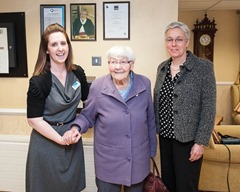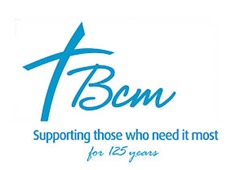Improving care services for older people
 OakleeTrinity and Belfast Central Mission are focusing attention on how to practically serve vulnerable older people, especially those experiencing dementia.
OakleeTrinity and Belfast Central Mission are focusing attention on how to practically serve vulnerable older people, especially those experiencing dementia.
Northern Ireland currently has the fastest growing elderly population in the UK with more than a quarter of a million men and women of a pensionable age. Meeting the needs of older people is a long-standing priority for Northern Ireland’s largest housing association, OakleeTrinity, which provides specialist and innovative housing, care and support.
Complementing the strategic direction on health and social care outlined in the Housing Executive’s Supported Housing Strategy, the association collaborates with 40 partners from the charitable and voluntary sector and health and social care trusts to maximise its range of services.
This includes several award-winning schemes that cater specifically for older people and people with dementia-related illnesses as well as general needs, sheltered and supported housing.
OakleeTrinity gained its charity number from the Charity Commission for Northern Ireland in June following the Department for Social Development’s approval of a merger between Oaklee Homes Group and Trinity Housing. It formalises recent collaborations between both organisations and means the new association can concentrate more efforts towards the quality and reach of current and future services.
Timothy Quin, Chairman of OakleeTrinity, said: “We value the individuality of every tenant and the contribution of older tenants to OakleeTrinity and the wider community. We have developed homes and services that support independent living that enable older people to remain active and engaged in their neighbourhoods. While many have little or no support needs, our tenants enjoy the confidence of knowing that OakleeTrinity can support them through any change in circumstances.”
A longstanding partnership with Belfast Central Mission (BCM) enables tenants to live in flatlets at Kirk House Residential Home in Belfast instead of a traditional bedroom. It provides independent living but with similar levels of care and staff to those found in residential care facilities.







